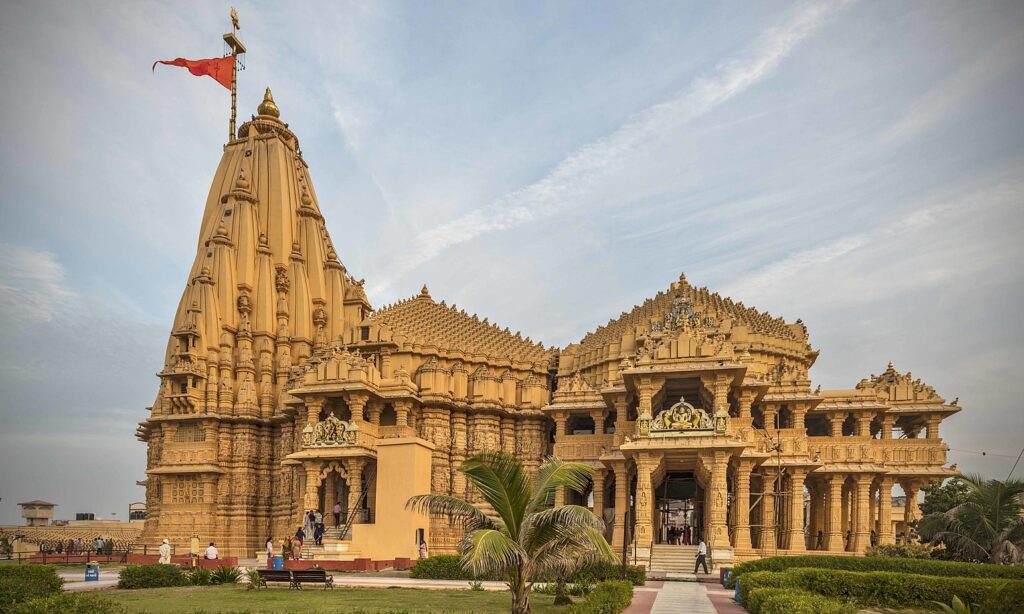Gujarat, a dynamic state in western India, is well-known for its many cultures, long history, and major contributions to the country’s economic expansion. The State’s history is one of tenacity, inventiveness, and advancement, spanning from prehistoric societies to contemporary enterprises.
Geography
Gujarat being a large state has a varied topography that includes wide Arabian Sea coastline, lush plains, and untamed areas. Madhya Pradesh to the east, Rajasthan to the north, and Maharashtra to the south form the state’s borders. The State’s coastline is bounded by the Gulf of Khambhat and the Gulf of Kutch, which provide chances for tourist and marine trade.
History and Heritage
Gujarat has a long and rich history that dates back to antiquity. Excavations at places like Lothal have revealed the Indus Valley Civilization’s skill in both maritime and urban domains. Later, the Chalukyas, Guptas, and Mauryas were among the dynasties who governed Gujarat. During the medieval era, the region prospered under the Solanki dynasty, producing remarkable architectural masterpieces such as the Sun Temple in Modhera and the Rani ki Vav stepwell in Patan.
Medieval Gujarat
Gujarat became a major hub for trade and commerce in the Middle Ages, drawing traders from all over the world. The port city of Surat developed and became a major hub for shipping between the Middle East, Africa, and Europe. The State’s commercial communities—the Parsis and the Bohras, for example—contributed significantly to the success of the state by acting as key players in international trade.
Colonial Era and Independence Movement
Gujarat was ruled by the Gujarat Sultanate in the fifteenth century, and thereafter by the Mughal Empire. European powers, especially the Portuguese and the British, arrived and established colonial supremacy in the area. The State’s territory came under the administration of the British East India Company, which brought about profound socioeconomic changes. Given that stalwarts of the Indian independence movement, such as Mahatma Gandhi, were from the state and spearheaded important campaigns like the Dandi March, the state was vital to the movement.
Post-Independence Development
Gujarat became a major industrial and economic powerhouse after independence because to the inspirational leadership of people like Sardar Vallabhbhai Patel and Morarji Desai. The state laid the groundwork for its quick advancement by giving industry, infrastructure development, and agricultural reforms first priority. The State became the economic hub of India thanks to its pro-business laws, trained labor force, and strong infrastructure, which drew investments from both local and foreign businesses.
Economic Growth and Industrialization
The State’s economy is distinguished by its varied industrial foundation, which includes industries like agribusiness, textiles, petrochemicals, and pharmaceuticals. The state is home to Surat’s thriving diamond industry and Jamnagar, India’s largest petrochemical complex. Gandhinagar’s Gujarat International Finance Tec-City (GIFT City) has drawn top financial institutions and businesses, positioning itself as a worldwide financial powerhouse.
Infrastructure and Connectivity
Gujarat has state-of-the-art ports, airports, motorways, and railroads, among other connectivity and infrastructural networks. Some of the busiest ports in India are located in the state, namely Mundra and Kandla, which helps with international trade. The State is well-connected to major cities and industrial areas around the nation by road and rail, which facilitates the smooth movement of people and products.
Tourism and Cultural Heritage
Travelers come to Gujarat from all over the world for its varied landscapes and rich cultural legacy. The state is home to two UNESCO World Heritage Sites: the Champaner-Pavagadh Archaeological Park and the Rani ki Vav in Patan. A visitor’s senses are delighted by the State’s colorful festivals, exquisite street food and thali, and traditional arts and crafts.
Environmental Conservation
Gujarat gives measures for sustainable development and environmental preservation first priority. In terms of producing renewable energy, the state has advanced significantly, especially in the areas of solar and wind power. Its dedication to renewable energy and reducing the effects of climate change is demonstrated by initiatives like the Gujarat Solar Park.
Challenges and Opportunities
Gujarat is confronted with issues like socioeconomic inequality, environmental degradation, and regional inequities despite its impressive success. To address these issues and promote inclusive growth and development, the state government is putting numerous plans and initiatives into action. The State is ideally situated to lead India into the 21st century because to its advantageous location, highly qualified labor population, and strong infrastructure.
Summary
In conclusion, Gujarat’s development from a prehistoric civilisation to a contemporary industrial superpower is evidence of its tenacity, inventiveness, and spirit of enterprise. The State continues to be an example of prosperity and success in India as it takes on new challenges and seizes opportunities.

